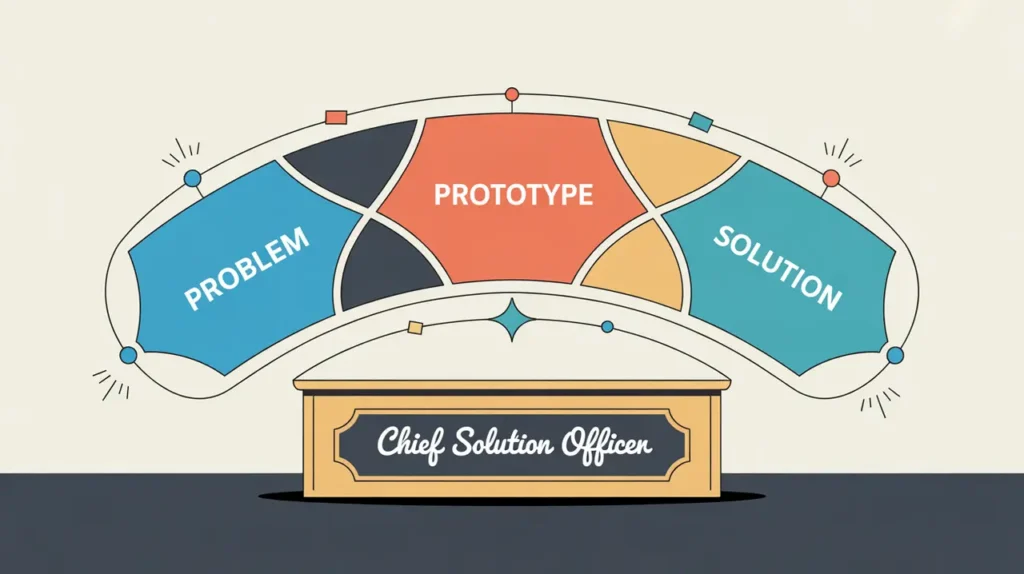What Does the Discovery Lead Role Involve?
A discovery lead is responsible for driving the organization’s efforts to identify emerging opportunities, surface critical insights, and frame strategic questions that shape future direction. This involves conducting exploratory research, scanning external environments, facilitating internal inquiry, and synthesizing findings to inform innovation, strategy, or program design. The role typically sits within the strategy, innovation, or research function and works closely with program teams, leadership, partnerships, and data teams. In both nonprofits and social enterprises, discovery leads play a key role in ensuring that the organization remains curious, adaptive, and strategically informed in a rapidly changing world.
At What Level does this Role Operate?
Senior Level: This role typically reports to a director or chief in strategy, innovation, or research functions. It involves leading discovery initiatives, coordinating cross-functional exploration efforts, advising leadership on findings, and shaping the early stages of strategic or programmatic development.
Relative Employability: Discovery lead roles are emerging as organizations place greater emphasis on foresight, innovation, and adaptive strategy. While not as ubiquitous as traditional program or strategy roles, their importance is growing across nonprofits, social enterprises, philanthropic organizations, and international NGOs.
Relative Pay Scale: Within nonprofits and social enterprises, discovery lead roles typically sit in the senior management pay bands, reflecting their strategic influence, specialized skill set, and contribution to shaping future initiatives.
What are the Key Responsibilities and Activities?
- Lead the design and execution of discovery initiatives to surface emerging opportunities, challenges, and trends
- Conduct exploratory research, horizon scanning, and ecosystem analysis across relevant fields and geographies
- Facilitate inquiry processes within teams and leadership to identify strategic questions and areas for exploration
- Synthesize data, research, and insights into clear narratives and strategic recommendations
- Collaborate with innovation, strategy, and program teams to translate discovery findings into actionable ideas
- Build relationships with external networks, experts, and partners to expand sources of insight
- Design tools and frameworks for structured exploration, learning, and knowledge sharing
- Present findings to leadership and boards to inform strategic decision making
- Track the evolution of identified opportunities and trends to support adaptive planning
What Core Competencies and Qualifications are Needed?
Required Qualifications and Experience
The following reflect common qualifications and experience expected for this role, while recognizing that pathways may vary by context, organization, and region.
- Relevant academic background in research, strategy, innovation, social sciences, or a related field, or equivalent professional experience
- Significant experience in exploratory research, strategic foresight, or innovation roles
- Strong analytical, synthesis, and facilitation skills
- Proven ability to work across functions and translate complex insights into actionable strategies
- Excellent communication and storytelling capabilities
Key Competencies
- Discovery process design and leadership
- Environmental scanning and strategic foresight
- Analytical synthesis and narrative framing
- Cross-functional collaboration and advisory
- Research and knowledge integration
- Strategic communication and presentation
How are AI and Automation Shaping this Role?
An AI-native discovery lead will look to AI and automation to expand their scanning and analytical capabilities. They can use AI tools for large-scale trend analysis, natural language processing of research and news sources, network mapping, and predictive modeling to surface emerging opportunities earlier. Automation can streamline data collection, tagging, and synthesis workflows, enabling discovery leads to focus on framing insights and guiding strategic conversations. By integrating AI thoughtfully, discovery leads can operate with greater depth, speed, and foresight.
What Career Pathways and Transferable Skills are Associated with this Role?
Discovery lead roles can lead to positions such as director of strategy, director of innovation, or research leadership roles. The skills developed in exploratory research, foresight, framing, and synthesis are highly transferable across nonprofits, social enterprises, philanthropic organizations, research institutions, and strategic consultancies. This role provides a strong platform for advancing into positions that shape strategy, innovation, and organizational direction.







